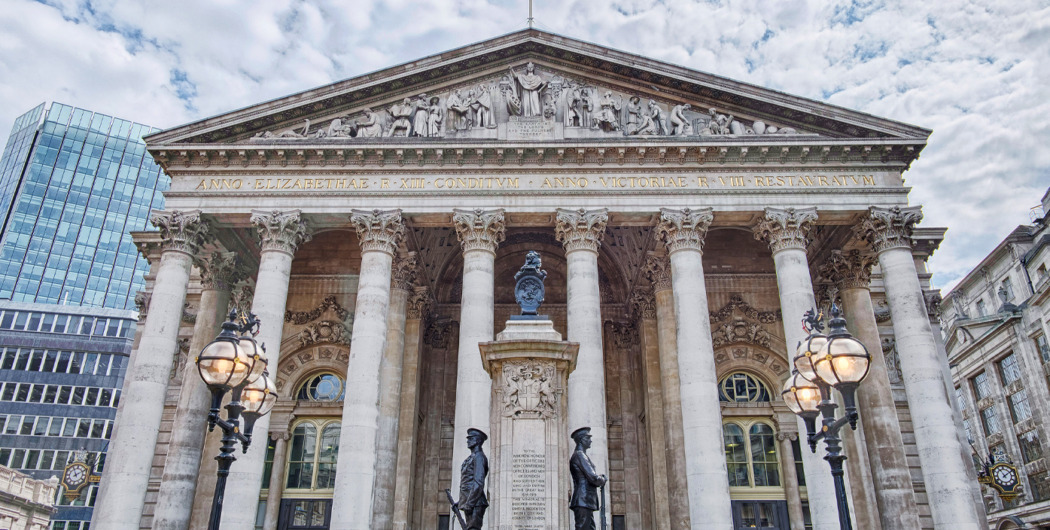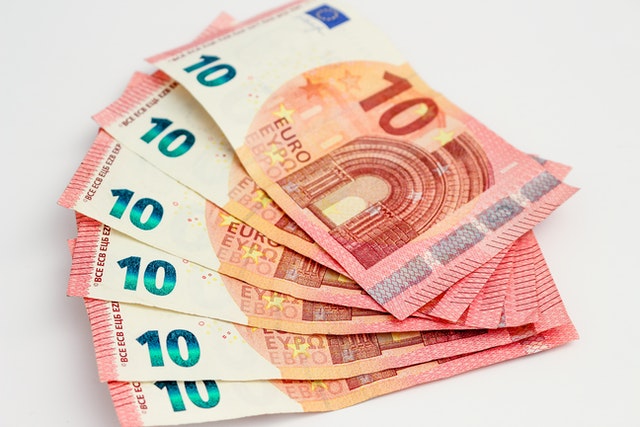

The issue of what is a stock exchange and how to figure out its specific features has long been haunting the minds of eager future investors who want to invest in really worthwhile things. The article will help you understand the main nuances, explain the functions of stock exchanges and how they function. The most striking examples will be listed here, too!
Basics
Stocks were first traded in Amsterdam in the 17th century, with the Dutch East India Company being the first publicly traded company. The first stock exchange was established in Amsterdam in 1611. Let’s start with the stock exchange definition. In simple words, it is a special market where the participants in financial processes can purchase or sell various securities, including bonds, shares of EFT exchange-traded funds, and so on. The market itself is an instrument in the act of trading. The most common types of stock exchange include e-trading, auctions, over-the-counter (OTC), and electronic communication networks markets.
How does it work?
First and foremost, the role of the stock exchange is to bring corporations and government together with the investor. Furthermore, it guarantees liquidity — the number of sellers and buyers at a well-established exchange is sufficient for a fast and uninterrupted flow of offers and transactions.
Once a company has completed its initial public offering, it becomes available on the stock exchange in the primary market. After public shareholders purchase securities, they can offer them on the secondary market. It is important that the exchange monitors the flow of orders for each type of stock, as well as the supply and demand, and the optimal prices are thus determined by the market, i.e., by the balance between supply and demand.
How stock exchanges work
Stock exchanges are places where you can trade various financial instruments, such as bonds, commodities, and stocks. These exchanges connect governments, corporations, and investors. Furthermore, stock exchanges can give the market more liquidity, allowing better trade processing thanks to the increased number of sellers and buyers.
Through exchanges, trading can take place in a fair and orderly way. So, there will be no issues in the way important financial data is transmitted to financial professionals and investors.
Initially, a stock will join the exchange after an initial public offering made by a company. The firm will begin selling shares to the first public shareholder group in an IPO. This group is also called the “primary market”.
Once the IPO gives shares to the public shareholders, they can start being sold and bought on an exchange, also known as the secondary market. Every stock’s order flow can be monitored by the exchange, and the price of each stock will be influenced by the demand and supply flow.
Then, it may be possible for you to see the price action flow depending on what brokerage account you have.
There are numerous stock exchanges all over the world, but some are larger than others. Some very popular ones are the NASDAQ, the New York Stock Exchange (NYSE), the London Stock Exchange (LSE), and the Tokyo Stock Exchange (JPX).

Auction exchanges
An auction exchange or market refers to a place that allows sellers and buyers to deal with competitive offers and bids at the same time. They will both put these bids in. The present stock price in auction exchanges is the highest price that any buyer will spend on securities. Meanwhile, the lowest price refers to the smallest amount that the seller can accept.
Orders are done when trades get matched and paired together.
In an auction market, traders and brokers can communicate with each other on the trading floor either verbally or physically. This is one reason why this type of exchange is also known as the open outcry system. As they communicate, traders and brokers can sell or purchase securities.
The NYSE or New York Stock exchange is one of the very few exchanges that still takes advantage of the auction system. Nowadays, these systems are beginning to be replaced by electronic ones.
NYSE is the largest equities exchange in the world. It is also one of the largest auction markets. Many investors who settle for the NYSE can enjoy some protection.
Electronic exchanges
Electronic trading has gained more traction in recent years. When it comes to electronic exchanges, all processes unfold on an electronic platform. Therefore, no physical trading activity is required, and there aren’t any traders either. Besides, no centralized location is necessary.
Due to their nature, electronic exchanges are considered to be faster and more efficient when compared to traditional exchanges. Every single day, billions of dollars are carried out in trades on these exchanges.
One of the biggest electronic exchanges in the whole world is the NASDAQ. This exchange allows sellers and buyers to connect by simply using a telecommunications network.
Market makers or dealers are always prepared to sell and purchase NASDAQ stocks, and they also have their own stock inventory. On top of that, they must also post their ask and bid prices.
The governance and listing requirements are not different from those of NYSE. The minimum price for a stock is $4, and without meeting the requirements and maintaining them, it will be impossible for a stock to remain listed. Instead, it would end up being sent to an over-the-counter market.
Over-the-counter (OTC)
Over-the-counter exchanges refer to exchanges that list smaller companies, mainly firms that ended up being delisted by some of the exchanges described above. There are several OTC markets, with some of the largest ones being Pink Sheets and the Over-the-Counter Bulletin Board.
Pink Sheets is a listing service that doesn’t ask companies to do a registration with the Securities and Exchange commission. On top of that, firms will not have to submit quarterly 10Qs either. Moreover, there is minimal liquidity in this market.
On the other hand, the Over-the-Counter Bulletin Board used to be an electronic market maker community. Most of the time, the firms that you see here have been delisted from the NASDAQ. There weren’t any minimum annual assets or sales or any quantitative minimums requirements for listing on this exchange. However, in November 2021, the OTC Bulletin Board was closed.
Electronic Communication Networks (ECNs)
Electronic communication networks are some of the members of the alternative trading system exchange class. This type of system allows sellers and buyers to connect directly. As such, these networks allow you to trade stocks from the NASDAQ, as well as other exchanges.
Because they do not have transaction costs, ECNs are extremely convenient for many customers. Institutional investors are the ones that use ECNs more often.
Other exchanges
While the exchanges listed above are the most popular, there are many other exchanges all over the planet.
For instance, Euronext is the largest stock exchange in Europe, and it has gone through different mergers. At first, it was made after the Brussels, Paris, and Amsterdam stock exchanges merged. Europe also has the London Stock Exchange which is very important.
In Asia, there is the Shenzen Stock Exchange, as well as the Shanghai Stock Exchange.
Other exchanges include digital ones, like Binance, Kraken, and Coinbase.
How can it affect economic processes?

As we have already pointed out, the main stock exchange meaning and purpose lies in the development of the economy. Let’s break down the three main ways in which it usually contributes:
- Substantial capital raising: any firm that undertakes an initial public offering or regularly issues new shares can raise funds for expansion projects or to finance certain operations.
- Better corporate financial management: companies that present their shares on the biggest stock exchanges in the world are required to follow specific standards (set by financial reporting regulators). All this reduces the risks of fraud and money laundering, because company managers and the cash pool are under constant public control. The more honest and transparent all the processes are, the higher the share price.
- Improving economic efficiency: instead of people just putting their savings in a piggy bank, they have the opportunity to invest it (= fuel economic processes), and then receive additional income.
In addition, another crucial function of stock exchange is maintaining liquidity. After analyzing the information provided, it allows investors to determine the most appropriate value, taking into account supply and demand in a particular period of time.
The brightest examples
The very first exchange that has survived to this day and continues to operate actively is the NYSE, founded in 1792. The decision to create it was made by 24 brokers and traders.
Nevertheless, besides the NYSE (New York Stock Exchange), there are numerous other biggest stock markets in the world. For instance:
- LSE — London Stock Exchange (established in 1801, United Kingdom) with a market capitalization of £2.66 billion;
- Nasdaq (established in 1971, United States of America) with a market capitalization of $10.93 trillion;
- SSE — Shanghai Stock Exchange (established in 1990, China) with a market capitalization of $5.01 trillion.
The above-mentioned major exchanges only list shares of companies that publish their financial statements quarterly or yearly and meet special pre-tax income and publicly held shares requirements. Firms that have been found to be in serious legal violations or have reported incorrect financial data in the last 3-5 years (depending on the requirements of a specific exchange) are not eligible to apply for listing their shares.
Conclusion
To crown it all, a stock exchange is a special market for selling & purchasing financial instruments. As a rule, the whole trading procedure of the stock exchange begins with the purchase of shares in the primary market and continues with their sale in the secondary market. Only those companies that strictly follow the requirements and conduct their business honestly are allowed to present their securities, and the transparency of financial transactions affects the value of shares.










